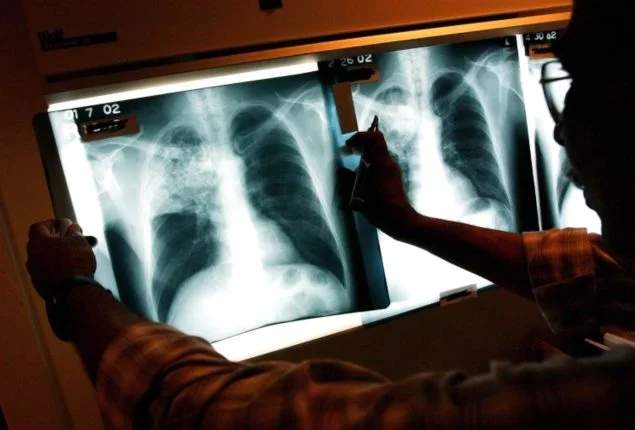WHO
ISLAMABAD: The World Health Organization (WHO) has officially classified Pakistan as one of the top five high-burden countries for tuberculosis (TB), reporting record-high cases in 2023.
Alongside India, Indonesia, China, and the Philippines, Pakistan accounted for more than half of the 10.8 million TB cases reported globally, highlighting a persistent public health crisis despite the existence of treatment and prevention measures.
In its Global Tuberculosis Report 2024, the WHO indicated that newly diagnosed TB cases surged to 8.2 million in 2023, a notable increase from 7.5 million in 2022, marking the highest number of cases since global monitoring began in 1995.
Tragically, TB was responsible for 1.25 million deaths, establishing it as the leading infectious disease killer of 2023, surpassing fatalities from COVID-19.
WHO Director-General Dr. Tedros Adhanom Ghebreyesus remarked, “TB remains a global health threat, particularly in high-burden countries like Pakistan.” He called upon nations to fulfill commitments aimed at expanding TB prevention, detection, and treatment to ultimately eliminate the disease.
While TB-related deaths showed a slight decline from 1.32 million in 2022, the disease continues to proliferate, particularly in resource-limited environments where factors like undernutrition, diabetes, smoking, and HIV infection are prevalent. Alarmingly, nearly 56% of the global TB burden in 2023 was concentrated in Pakistan and its neighboring high-burden countries.
One of the critical challenges in controlling TB is the rise of multidrug-resistant TB (MDR-TB), which defies common treatments and is closely associated with antimicrobial resistance.
In 2023, only 44% of MDR/RR-TB cases were diagnosed and treated, with a treatment success rate of 68%. This data underscores the significant obstacles health systems face in managing this resistant strain.
Despite efforts to combat TB at both national and international levels, financial constraints remain a pressing issue. Low- and middle-income countries (LMICs) required $22 billion in 2023 to effectively tackle TB but secured only $5.7 billion, equating to a mere 26% of the target.
The WHO’s report highlights that many TB-affected households incur catastrophic expenses, exceeding 20% of their annual income, to obtain necessary care and treatment.
Dr. Tereza Kasaeva, Director of the WHO’s Global Tuberculosis Programme, emphasized the urgent need for comprehensive, multisectoral action to address the challenges of funding shortfalls, financial burdens on patients, and the complications arising from conflict and climate change.
She urged that tackling TB necessitates collaborative efforts to overcome these barriers, alongside increased funding and research dedicated to diagnostics, treatments, and vaccine development.
The WHO’s advocacy for TB vaccine research emphasizes the pressing unmet needs in this area, revealing that only 20% of the $5 billion annual target for TB research was reached in 2022. The TB Vaccine Accelerator Council is actively engaged in advancing research efforts.
Furthermore, the WHO has reiterated the importance of honoring commitments made during the 2023 UN High-Level Meeting on TB, urging governments, donors, and global partners to translate pledges into effective strategies.
Currently, the targets set for 2027 are off-track, necessitating significant progress to reduce TB cases and fatalities on a global scale.
Dr. Ghebreyesus emphasized that the fight against TB requires immediate and coordinated actions to meet global milestones and ensure that effective, accessible TB care reaches those who need it most.










